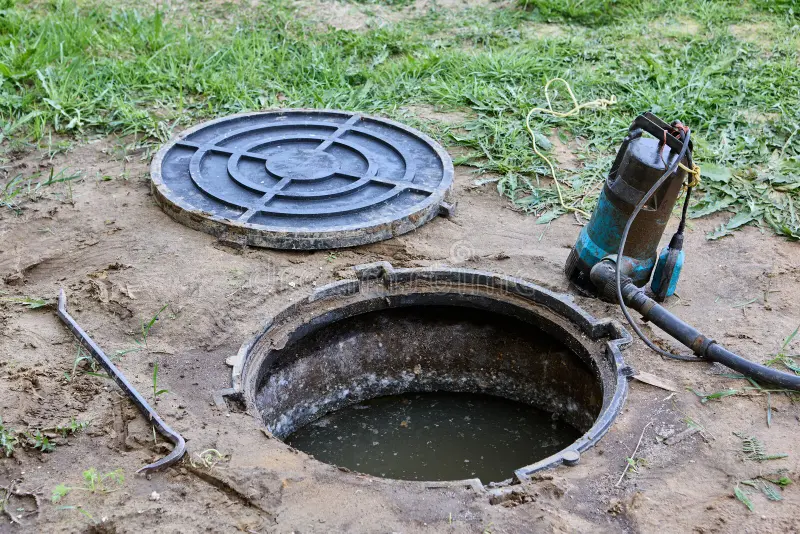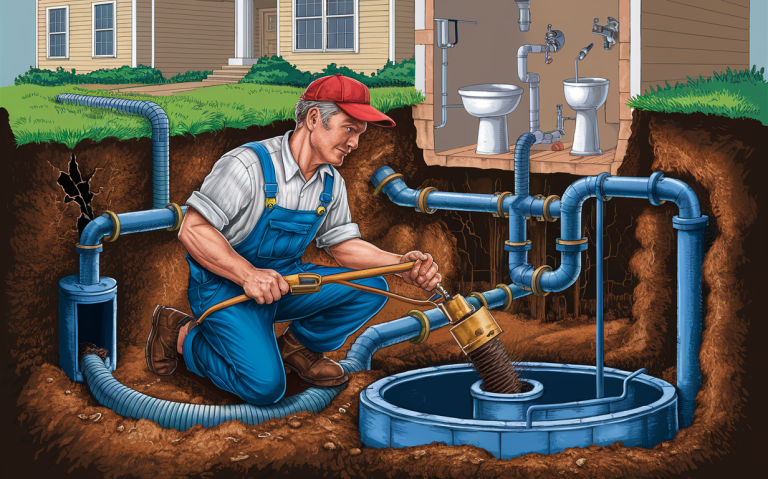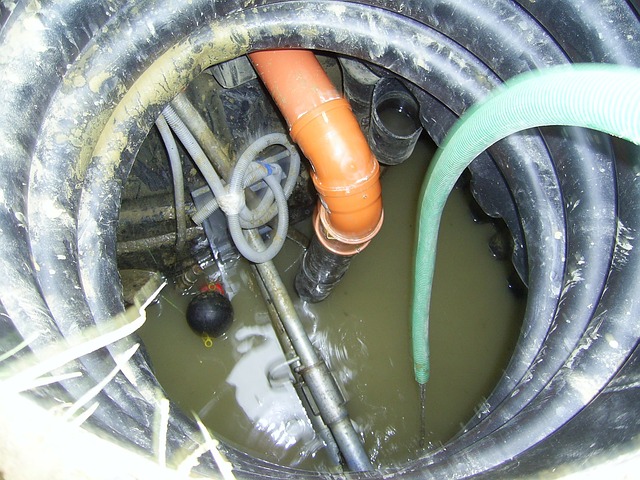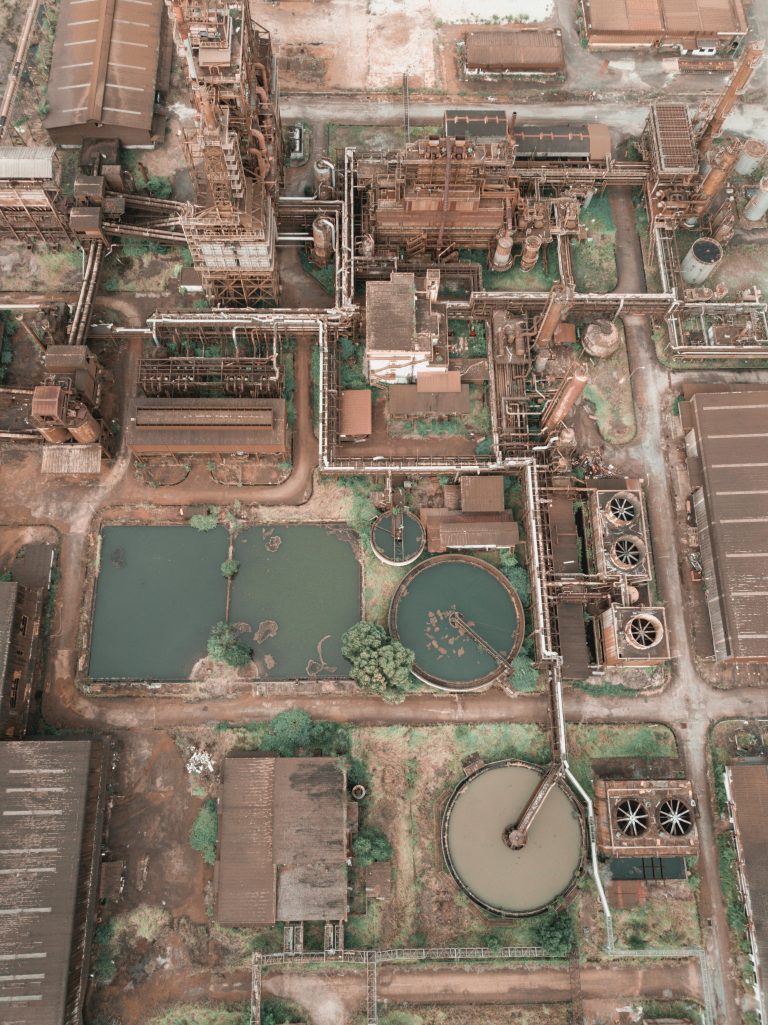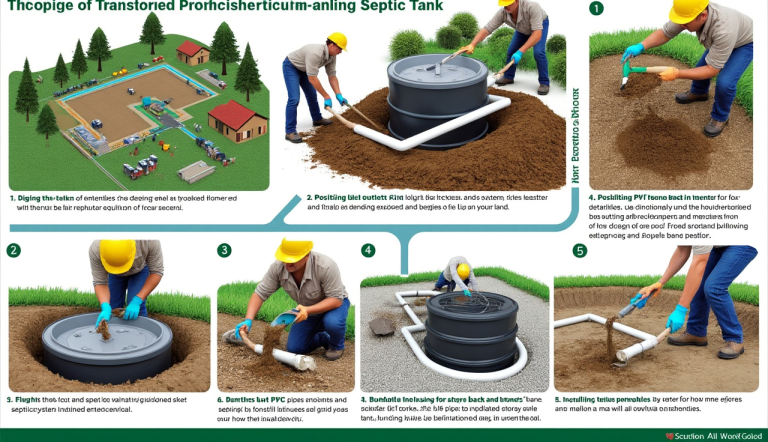Comprehensive Water Conservation for Septic System Maintenance
Learn water conservation and usage guidelines for septic system maintenance. Protect your tank, save money, and extend system lifespan.
Water Conservation for Septic System Maintenance a healthy septic system. By following proper water usage guidelines, you can extend the life of your septic system and prevent costly repairs. This article provides practical tips and strategies for Middletown, New York residents to effectively manage their water consumption while keeping their septic systems in top shape.
Table of Contents
Key Takeaways
- Efficient water use is essential for septic system health
- Fix leaks promptly to prevent unnecessary water waste
- Install water-saving fixtures throughout your home
- Spread out water usage throughout the day and week
- Avoid overloading your septic system with excessive water
- Water Conservation and Usage Guidelines for Septic System Maintenance is crucial for optimal septic performance
- Educate family members about proper water conservation practices
- Monitor outdoor water use to protect your drain field
- Choose septic-safe products for cleaning and laundry
- Schedule regular inspections with local septic professionals
Understanding the Water Conservation for Septic System Maintenance
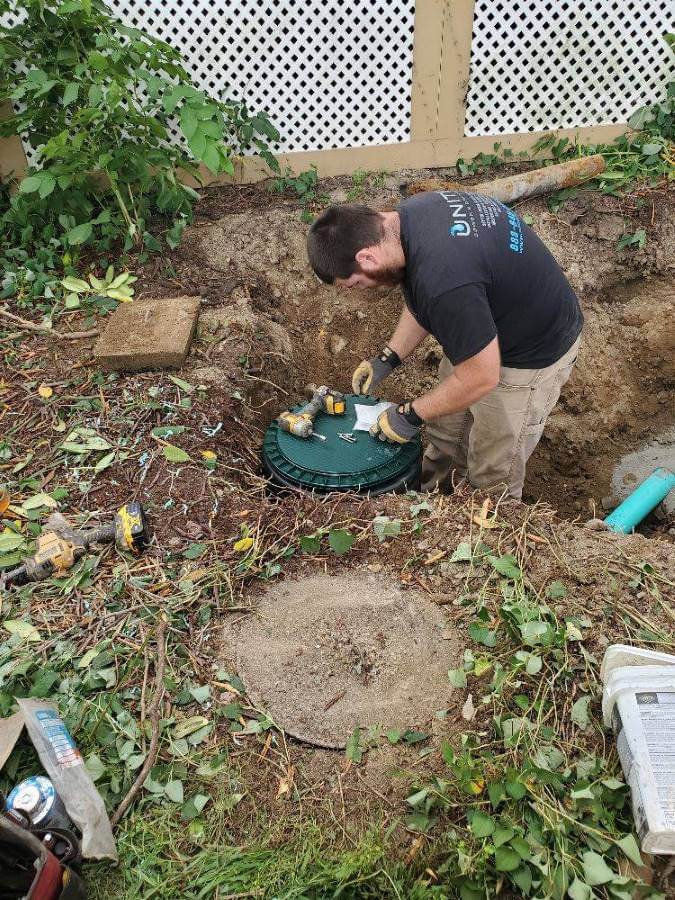
Many Middletown homeowners don’t realize how closely their water usage habits are tied to the health of their septic systems. Your septic tank relies on a delicate balance of bacteria to break down waste. When you use too much water, it can disrupt this balance and lead to system failures.
The Impact of Excessive Water on Septic Systems
Overloading your septic system with water can cause serious problems. When too much water enters the tank too quickly, it can push solid waste into the drainfield before it has a chance to break down. This can lead to clogs and backups, which are not only unpleasant but also expensive to fix.
Why Water Conservation Matters for Septic Owners
By conserving water, you give your septic system the time it needs to properly treat wastewater. This means less strain on the system, fewer repairs, and a longer lifespan for your septic tank and drain field. Plus, you’ll save money on your water bill – a win-win for Middletown residents.
Smart Water Usage Habits for Septic System Owners
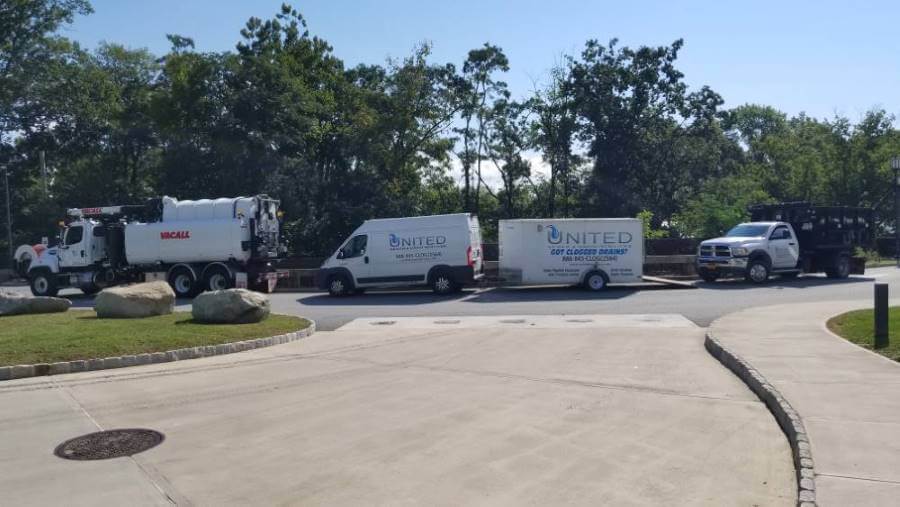
Developing good water usage habits is key to maintaining a healthy septic system. Here are some practical tips for Water Conservation for Septic System Maintenance that Middletown homeowners can implement right away.
Spread Out Your Water Use Throughout the Day
Instead of doing all your laundry in one day, spread it out over the week. This gives your septic system time to process the water between loads. The same goes for other water-intensive activities like showering and running the dishwasher.
Be Mindful of Your Shower Time
Long, hot showers might feel great, but they’re not doing your septic system any favors. Try to keep showers under 10 minutes. If you’re feeling ambitious, consider installing a timer in your bathroom to help family members keep track.
Use Full Loads for Laundry and Dishes
Wait until you have a full load before running your washing machine or dishwasher. This not only saves water but also reduces the number of times these appliances send large volumes of water into your septic system.
Upgrading Your Home for Better Water Efficiency
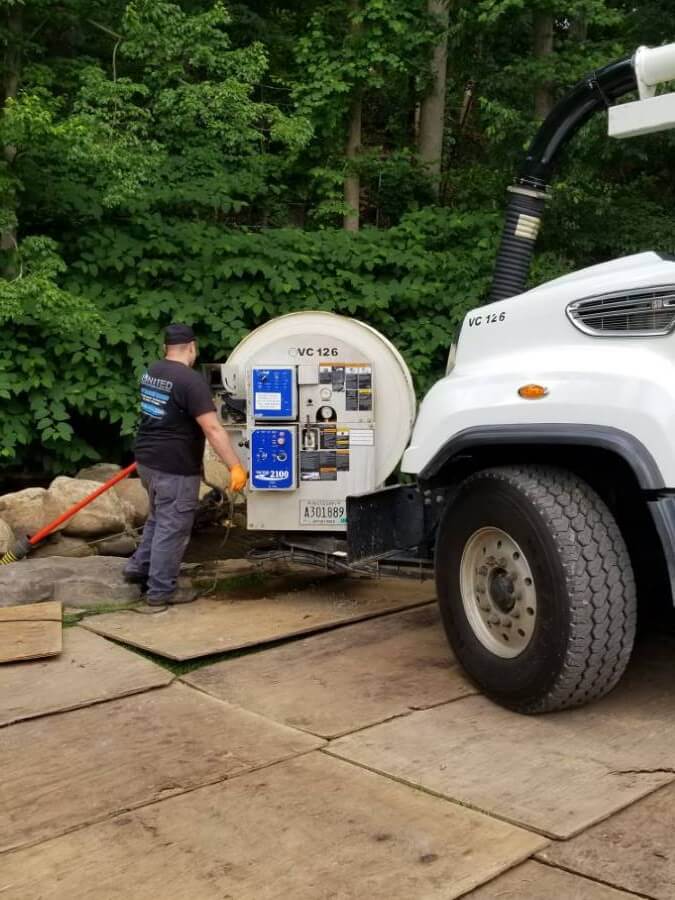
Water Conservation for Septic System Maintenance. Making some upgrades to your Middletown home can significantly reduce your water usage and benefit your septic system.
Installing Low-Flow Fixtures
Replacing old toilets, showerheads, and faucets with low-flow models can make a big difference. Look for WaterSense-labeled products, which are certified to be water-efficient.
Choosing Energy Star Appliances
When it’s time to replace your washing machine or dishwasher, opt for Energy Star-certified models. These appliances use less water and energy, which is good for both your septic system and your utility bills.
Consider a Greywater System
A greywater system can reuse water from sinks, showers, and washing machines for irrigation. This reduces the load on your septic system and conserves water. However, be sure to check local regulations in Middletown before installing one.
Outdoor Water Management for Septic System Protection
Your outdoor water use can have a big impact on your septic system, especially in Middletown’s variable climate.
Direct Rainwater Away from Your Drainfield
Make sure your gutters and downspouts are directing water away from your drain field. Too much water in this area can saturate the soil and prevent proper wastewater treatment.
Smart Landscaping Practices
Choose plants that are native to the Hudson Valley region and require less water. Consider using mulch to retain moisture and reduce the need for frequent watering.
Efficient Irrigation Methods
If you use an irrigation system, make sure it’s not overwatering your lawn or garden. Install a rain sensor to prevent watering during or after rainfall.
Maintaining Your Septic System Through Proper Water Use
Regular Water Conservation for Septic System Maintenance is crucial for keeping your septic system healthy, and proper water use plays a big role in this.
Schedule Regular Pump-Outs
Have your septic tank pumped every 3-5 years, depending on your household size and water usage. This prevents solids from building up and entering the drain field.
Avoid Harsh Chemicals
Use septic-safe cleaning products and avoid pouring harsh chemicals down the drain. These can kill the beneficial bacteria in your tank that break down waste.
Be Cautious with Garbage Disposals
If you have a garbage disposal, use it sparingly. Food waste can quickly fill up your septic tank and increase the frequency of needed pump-outs.
Educating Your Household on Water Conservation
Getting everyone in your household on board with water conservation is crucial for protecting your septic system.
Create a Water Conservation Plan
Sit down with your family and create a plan for reducing water use. Set goals and track your progress using your water bills.
Teach Kids About Water Conservation
Make water conservation fun for kids by turning it into a game. See who can take the shortest shower or spot leaky faucets.
Lead by Example
As a Middletown homeowner, set a good example by following water conservation practices yourself. Your family is more likely to follow suit when they see you making an effort.
Dealing with Water Shortages and Your Septic System
Middletown occasionally experiences drought conditions, which can affect your septic system.
Adjust Your Water Use During Dry Spells
During periods of drought, be extra mindful of your water use. Consider taking shorter showers and limiting non-essential water activities.
Monitor Your Drainfield
Keep an eye on your drain field during dry periods. If you notice any unusual odors or wet spots, contact a local septic professional right away.
Have a Backup Plan
Consider installing a rainwater collection system to use for non-potable purposes during water shortages. This can help reduce the strain on your septic system.
Seasonal Considerations for Water Use and Septic Care
The changing seasons in Middletown bring different challenges for Water Conservation for Septic System Maintenance
Winter Water Conservation Tips
In winter, be careful not to let faucets run to prevent freezing. Instead, insulate pipes and keep your home at a consistent temperature.
Spring and Summer Lawn Care
As you start caring for your lawn in spring and summer, be mindful of your water use. Water early in the morning to reduce evaporation and avoid overwatering.
Fall Preparation for Your Septic System
In the fall, have your septic system inspected before winter sets in. This is also a good time to clear leaves and debris from your drainfield area.
Common Water Wasters to Watch Out For
Some everyday habits can waste a lot of water without you realizing it. Here are some to be aware of:
Leaky Fixtures
A dripping faucet or running toilet can waste gallons of water per day. Fix these issues promptly to conserve water and protect your septic system.
Unnecessary Flushing
Only flush toilet paper and human waste. Dispose of other items in the trash to save water and prevent clogs in your septic system.
Overwatering Plants
Many Middletown residents overwater their plants. Learn about the water needs of your specific plants and adjust your watering schedule accordingly.
The Role of Professional Septic Services in Water Management
While there’s a lot you can do on your own, professional help is sometimes necessary for optimal septic system performance.
Regular Inspections
Have a local septic professional inspect your system annually. They can catch potential issues early and provide tailored advice for your specific system.
Water Use Audits
Consider having a professional conduct a water use audit of your home. They can identify areas where you’re wasting water and suggest improvements.
Expert Advice for Your Specific System
Every septic system is unique. A local professional can provide advice tailored to your specific system and the soil conditions in your area of Middletown.
Innovative Technologies for Water Conservation
New technologies are making it easier than ever to conserve water and protect your septic system.
Smart Water Meters
Consider installing a smart water meter. These devices can help you track your water use in real-time and identify unusual spikes that might indicate a leak.
Leak Detection Systems
Advanced leak detection systems can alert you to leaks before they become major problems. This can save water and prevent damage to your septic system.
Water Recycling Systems
While more complex, water recycling systems can significantly reduce your water use by reusing greywater for purposes like toilet flushing and irrigation.
The Financial Benefits of Water Conservation for Septic System Maintenance
Conserving water isn’t just good for your septic system – it’s also good for your wallet.
Lower Water Bills
By reducing your water use, you’ll see immediate savings on your monthly water bill. This can add up to significant savings over time.
Reduced Septic Maintenance Costs
A well-maintained septic system that isn’t overloaded with water will require less frequent pumping and have fewer issues, saving you money on Water Conservation and Usage Guidelines for Septic System Maintenance and repairs.
Increased Property Value
A properly functioning septic system can increase your property value. By taking good care of your system through water conservation, you’re investing in your home’s future value.
| Water Conservation Method | Estimated Water Savings (Gallons/Year) | Potential Cost Savings ($/Year) |
|---|---|---|
| Low-flow showerheads | 2,700 | $50 |
| Water-efficient toilets | 13,000 | $110 |
| Fixing leaky faucets | 3,000 | $35 |
| Energy Star washing machine | 7,000 | $75 |
| Rain barrel installation | 1,300 | $25 |
| Septic System Size (Gallons) | Recommended Pump-Out Frequency (Years) | Estimated Cost Per Pump-Out ($) |
|---|---|---|
| 1,000 | 3-5 | $300-$500 |
| 1,500 | 3-5 | $400-$600 |
| 2,000 | 5-7 | $500-$700 |
| 2,500 | 5-7 | $600-$800 |
Here are some additional water conservation tips and Water Conservation for Septic System Maintenance specifically for Middletown residents:
- Install rain barrels to collect rainwater for garden use
- Use a broom instead of a hose to clean driveways and sidewalks
- Adjust sprinklers to avoid watering the street or sidewalk
- Use drought-resistant plants in your landscaping
- Reuse pasta cooking liquid to water plants
- Collect shower warm-up water in a bucket for other uses
- Turn off the tap while brushing your teeth or shaving
By implementing these water conservation strategies, Middletown homeowners can significantly extend the life of their septic systems while also reducing their environmental impact and saving money. Remember, every drop counts when it comes to protecting your septic system and our precious water resources.
Learn Water Conservation for Septic System Maintenance Protect your tank, save money, and extend your system lifespan. For more information, you can visit our website or contact us.

